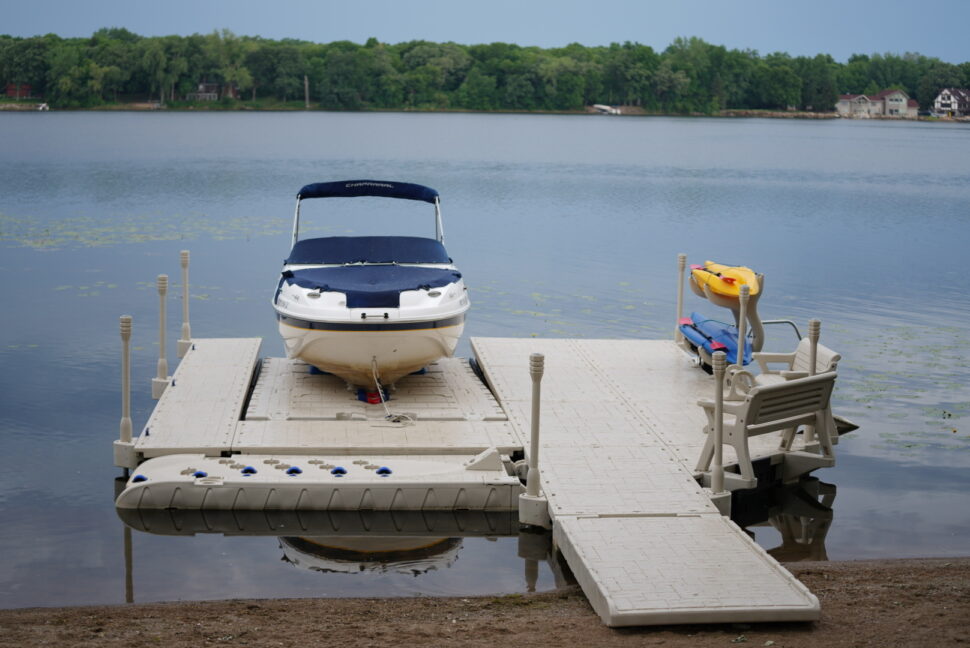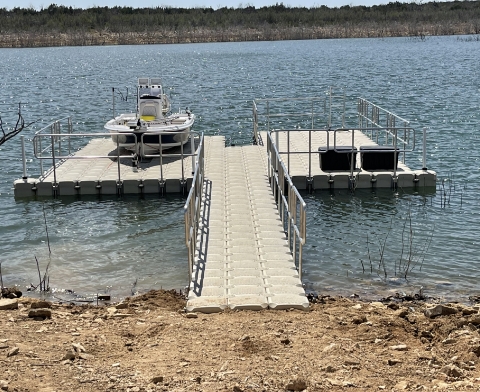Discovering the Comprehensive Floating Dock Services Used by Sector Leaders
Discovering the Comprehensive Floating Dock Services Used by Sector Leaders
Blog Article
The Ultimate Guide to Picking the Ideal Floating Docks
Choosing the perfect floating dock requires a comprehensive understanding of numerous aspects that affect both efficiency and durability. Factors such as dock kinds, materials, and essential functions dramatically impact your decision-making procedure. Factors to consider around installment and budget can further complicate the option. By taking a look at these aspects systematically, one can guarantee a financial investment that not only fulfills instant needs however likewise enhances total building value. As we explore these vital elements, it ends up being clear that the ideal options can result in a useful and long lasting option tailored to your details needs.
Comprehending Floating Dock Kind
When selecting a drifting dock, it is vital to understand the various types offered, as each serves distinct objectives and applications. Floating docks mostly come under three classifications: modular, fixed, and pontoon docks.
Modular docks are made up of specific sections that can be quickly put together or reconfigured, making them ideal for transforming water levels and diverse usages, such as commercial procedures or entertainment tasks. Their flexibility permits personalization based upon details demands.

Pontoon docks are characterized by their buoyant framework, often made up of multiple pontoons that give security and support. They are particularly appropriate for bigger vessels and are commonly made use of in marinas or for waterfront properties. Understanding these types help in picking one of the most ideal floating dock to meet particular demands, ensuring ideal capability and safety and security.
Trick Products for Toughness
Picking the right products for floating docks dramatically impacts their sturdiness and long life. One of the most typical materials consist of wood, plastic, metal, and composite products, each offering distinctive benefits and restrictions.
Wood, usually preferred for its visual allure, needs routine upkeep to hold up against dampness and decay. Pressure-treated lumber can improve resistance to rot, yet it might still be prone to parasites and weathering.

Plastic docks, made from high-density polyethylene (HDPE), are immune to deterioration, UV radiation, and effect, making them a popular choice for seaside atmospheres. Their light-weight nature likewise facilitates simple installation and moving.
Steel docks, usually built from light weight aluminum or galvanized steel, give phenomenal stamina and durability. They are immune to deterioration, particularly when dealt with, however might require added insulation to protect against heat build-up in warm climates.
Composite materials, incorporating timber fibers and plastics, provide the benefits of both wood and plastic, resisting dampness and fading while needing very little upkeep. - floating dock company
Eventually, the option of materials should align with environmental problems, meant usage, and maintenance choices to ensure the floating dock continues to be functional and cosmetically pleasing over time.
Crucial Attributes to Consider
While the selection of products is vital, thinking about vital attributes for floating docks is similarly important to ensure ideal efficiency and customer complete satisfaction. One essential attribute to assess is the dock's buoyancy ability, which figures out just how much weight it can sustain without immersing. floating dock services. This is vital for fitting boats, individual boat, and even leisure tasks
Furthermore, transportability is a considerable factor to consider. Depending on your demands, you might desire a dock that is easy to move and dismantle, especially if you plan to relocate it seasonally. Security is an additional necessary feature; a properly designed floating dock needs to reduce motion created by wind and water currents, offering a safe platform for users.
Safety features, such as non-slip surfaces and rounded sides, are additionally important to avoid mishaps, especially in wet conditions. Think about the availability of devices, such as cleats, bumpers, and ladders, which can improve the functionality of your dock.
Installation and Upkeep Tips
Setting up and keeping a floating dock calls for careful preparation and focus to information to ensure its durability and ideal efficiency. Begin by choosing this article an appropriate area that lessens exposure to solid currents and waves, which can cause damage. Make sure that the water depth suffices for the dock's elevation and that it is secured safely to protect against movement.
During installment, follow the producer's standards very closely, as improper assembly can compromise security. Use top quality products resistant to deterioration, such as aluminum or treated wood, to enhance toughness. Routinely evaluate all see page components, including floats, ports, and securing systems, for signs of damages or wear.
If your dock makes use of flotation tools, ensure they continue to be free and undamaged from leaks. By adhering to these setup and maintenance ideas, you can delight in a useful and reliable floating dock for years to come.
Budgeting for Your Dock
Budgeting for your dock is a vital step that can significantly impact your general contentment and financial investment in a waterfront building. Establishing a clear budget aids you browse the numerous options available and guarantees you make educated choices that align with your financial capabilities.
Begin by figuring out the size and layout of the dock you need, as these aspects will considerably influence the expense. Floating docks can differ significantly in price, relying on products, buoyancy, and features like accessories and ramps. Research study different suppliers and distributors to compare prices and understand the marketplace value.
In enhancement to first prices, take into consideration continuous expenses such as upkeep, insurance policy, and prospective repair services. Allot funds for these recurring costs to stay clear of shocks down the line. It's also sensible to budget plan for any type of needed licenses or assessments, which may be needed by local laws.
Last but not least, bear in mind the prospective roi. A well-planned dock can enhance your property's value and appeal, giving a favorable economic impact in the long-term. By budgeting effectively, you can guarantee that your dock fulfills your demands without endangering your financial security.
Final Thought
In conclusion, choosing the optimal floating dock requires a detailed assessment of different aspects, including dock kinds, materials, necessary features, and installment procedures. Cautious consideration of monetary constraints will certainly even more ensure a sound financial investment.

While the option of materials is important, taking into consideration vital functions for floating docks is similarly vital to make sure optimal performance and individual contentment.Establishing up and keeping a floating dock needs cautious preparation and attention to information to guarantee its longevity and optimal efficiency. Floating docks can differ significantly in cost, depending on products, buoyancy, and click for more functions like ramps and accessories.In final thought, selecting the excellent floating dock demands an extensive examination of different factors, including dock types, products, vital functions, and installation processes.
Report this page